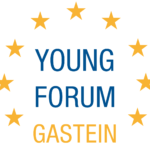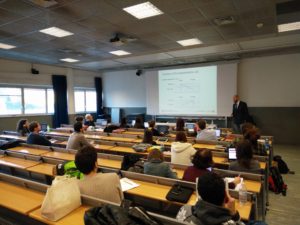by Alessandra Lafranconi, Kevin Rieger, Katarzyna Czabanowska und Marco Parenti.
Already a few years ago, mainly during cultural activities proposed at the School of Medicine of the University of Milano-Bicocca, a gap has been noticed: medical students are willing to study and discuss health policies and politics, but often do not have the chance to do so. In most cases, they fail to recognize the context or the institutional framework, which might be regional (in accordance with the Italian devolution of the National Health System’s competences), national, or European.
In 2013, the Board of the School of Medicine approved the introduction of a new course, titled “Non-formal education” (NFE).
NFE initially started with a focus on two themes: healthcare professionals’ mobility and ethical issues in medical practice. NFE has been the first attempt to bring health policy and debate into a very technical environment.
Students’ highly positive evaluation results have solicited NFE coordinators to proceed further. Thanks to the advices of external experts from the University of Maastricht, and with the support of the 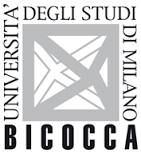 Erasmus+ Programme, the Jean Monnet Module “Development for health”, in short Dev4h, has been launched at the University of Milano-Bicocca, School of Medicine, for three consecutive academic years starting from January 2017.
Erasmus+ Programme, the Jean Monnet Module “Development for health”, in short Dev4h, has been launched at the University of Milano-Bicocca, School of Medicine, for three consecutive academic years starting from January 2017.
Using blended approach, consisting of theoretical lectures and practical laboratories, Dev4h focuses on food and nutrition, environmental health, and access to healthcare, to provide future healthcare and health-related professionals with key abilities and tools to read, analyse, and contribute to the complex debates on public health issues. Understanding the complexity of shared competencies between the European Union and its Member States in the field of health is a key objective of the course.
Dev4h has been conceived to specifically target health science and health students of medicine and health-related studies, for whom the knowledge of EU principles and laws is fundamental [1]: even though healthcare is mostly a national issue, we cannot ignore the existence of a single market (which impacts, for instance, the access to food and health-related technologies), as well as the increasing mobility of people between countries, either patients or healthcare professionals. Moreover, there are health-related subjects which are solely in the competence of the European Union, such as consumer safety, food safety, and environmental health. Thus, Dev4h is structured to address the three mentioned topics, i.e. nutrition, environment, and healthcare.
The choice of topics has been based on the following considerations:
- The EU role on health-related issues has evolved from marginal initiatives to a wide range of coordinated activities on determinants of health, such as tobacco, alcohol, dietary habits, as well as environmental determinants, social determinants, injuries, and other external causes, and misuse of drugs [2]. These public health topics are briefly treated in Medical Schools, and usually from a technical perspective only.
- The EU is also involved in actions focused on patients’ needs, such as the quality of care in general and more specifically the quality of healthcare products [3]; current constraints, especially from a financial point of view, make access of care a topic of primary importance [4].
- Lastly, the internal market has important consequences for health: not only because of explicit legislation on cross-border health care, but also because of the EU dimensions of free movement on services, goods, people, and capital [5]. This dimension, together with background knowledge on the EU, its laws, and their implications on human health, will be stressed in each edition of the Module.
Where: School of Medicine of University of Milano Bicocca (Monza, via Cadore 48, Italy) When: offered 3 times between January 2017 and September 2019 Year 2017: 5 Mondays between January and February 2017 Year 2018: 5 Mondays between March and April 2018 Year 2019: TBD Number of hours per year: 40 (5 days) Participants’ background: medicine, healthcare studies, health-related studies; not restricted to participants from University of Milano Bicocca Participants’ selection: CV and motivation letter International students already living in the area: encouraged to apply Fee: no applicable fee Language: English and Italian (the knowledge of the latter is not required) Approach: blended (theory + practical activities)
Expected impacts related to the core structure of Dev4h: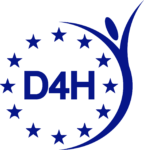
- Teaching activities: Since medical doctors and health professionals in general are often considered “informed opinion leaders” by our society, the benefit of a deeper knowledge on the funding principles and the decision-making processes at the European level will not be confined to the primary audience of the course.
- Research production, undertaken by experts and motivated students: If the production is successful in addressing societal questions, it will constitute a good practice in bridging the gaps between scientists and decision-makers.
- Increased contact with external environment: Possibilities of learning experiences at experts’ institutions and dialogue with civil society will respectively foster cultural awareness and dialogue, and enhance civic skills, empowerment and societal inclusion.
The module is evaluated through a set of indicators, such as the variation of the post-module assessment, compared to the pre-module assessment, on knowledge and attitude towards the EU and public health.
The intrinsic, and perhaps primary goal of Dev4h is, to enhance civic conscience and leadership skills of the participants [6]. Health science students have few opportunities to learn about the structure and the founding principles of the EU. We strongly believe that there is an urgent need to openly talk about the EU as such: with regards to the civil participation in European politics, we aim at (1) showing the positive consequences derived by the EU funding principles and reflected in the European public health arena, and (2) passing along the idea that the EU is a participatory democracy, in which every subject has the right to express their own point of view.
Acknowledgments
Development for health (Dev4h) is a Jean Monnet Module that was granted the support of the Erasmus+ programme of the European Union. The Jean Monnet Module is part of the wider Jean Monnet Actions, whose beneficiaries include higher education institutions specialising in European integration.
The authors are grateful to Prof Katarzyna Czabanowska (President Elect of ASPHER and Chair of the EUPHA Working Group on Public Health leadership) and to Prof Marco Parenti (Dev4h Scientific Advisor, and Coordinator of International Mobility for the School of Medicine, University Milano Bicocca).
About the authors
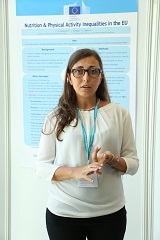
Alessandra Lafranconi
Alessandra Lafranconi, MD, MSc Environmental health
Resident Physician in Hygiene and Preventive Medicine at University Milano Bicocca
Member of EUPHA-ASPHER working group on public health leadership
Marco Parenti, PhD
Full professor at University Milano Bicocca
Coordinator of International Mobility for the School of Medicine, University Milano Bicocca
Kevin Rieger, MSc European Public Health
Lecturer at University of Maastricht
Member of EUPHA-ASPHER working group on public health leadership
Katarzyna Czabanowska, PhD
Associate Professor at University of Maastricht
President Elect of ASPHER and Chair of the EUPHA Working Group on Public Health leadership
References
[1] Rieger K, Brand H, Which Road to go for Europe regarding Health: Federation, Union or becoming Swiss? European Journal of Public Health, 2014, Volume 24, Suppl 2
[2] Greer SL, Fahy N et al. on behalf of the European Observatory, Everything you always wanted to know about European Union health policies but were afraid to ask, WHO 2014, Observatory Studies Series 34 Corinna Sorenson Michael Drummond Panos Kanavos
ISBN 978 92 890 50 272
[3] Sorenson C, Drummond M and Kanavos P, Ensuring value for money in health care – The role of health technology assessment in the European Union, WHO 2008, Observatory Studies Series 11, ISBN 978 92 890 7183 3
[4] Reeves A, McKee M, Stuckler D, The attack on universal health coverage in Europe: recession, austerity and unmet needs, Eur J Public Health, 2015, 25(3): 364–365
[5] Rosenkötter N, Clemens T, Sørensen k, Brand H, Twentieth anniversary of the European Union health mandate: taking stock of perceived achievements, failures and missed opportunities – a qualitative study, BMC Public Health. 2013; 13: 1074
[6] Lafranconi A, Gomes BL, Stankunas M, Babich SM, Rethmeier K, Czabanowska K, Medical leadership: from inspiration to education, Comment on Horton, The Lancet, 2015, Vol. 386, No 10003, pp 1531-1532

Citation:
Lafranconi, Alessandra/ Rieger, Kevin/ Czabanowska, Katarzyna/ Parenti, Marco: Taching Public Health through EU Lenses (In: Polak, G. [ed.]: GI-Mail 02/17, ISSN: 2312-0827 Going International, Vienna 2017)
Here you can download this publication.
Published in GI-Mail 02/2017 (English edition).
- Do you already know our monthly newsletter GI-Mail with useful tips on postgraduate courses?
Sign up here. - Are you looking for vacancies or new career challenges? Here you will find the latest vacancies and job offers.
- Are you interested in up to date postgraduate courses and CME? In our education database »medicine & health« you will find new education events from over 2300 organizers.
Booth2020
Booth2021

